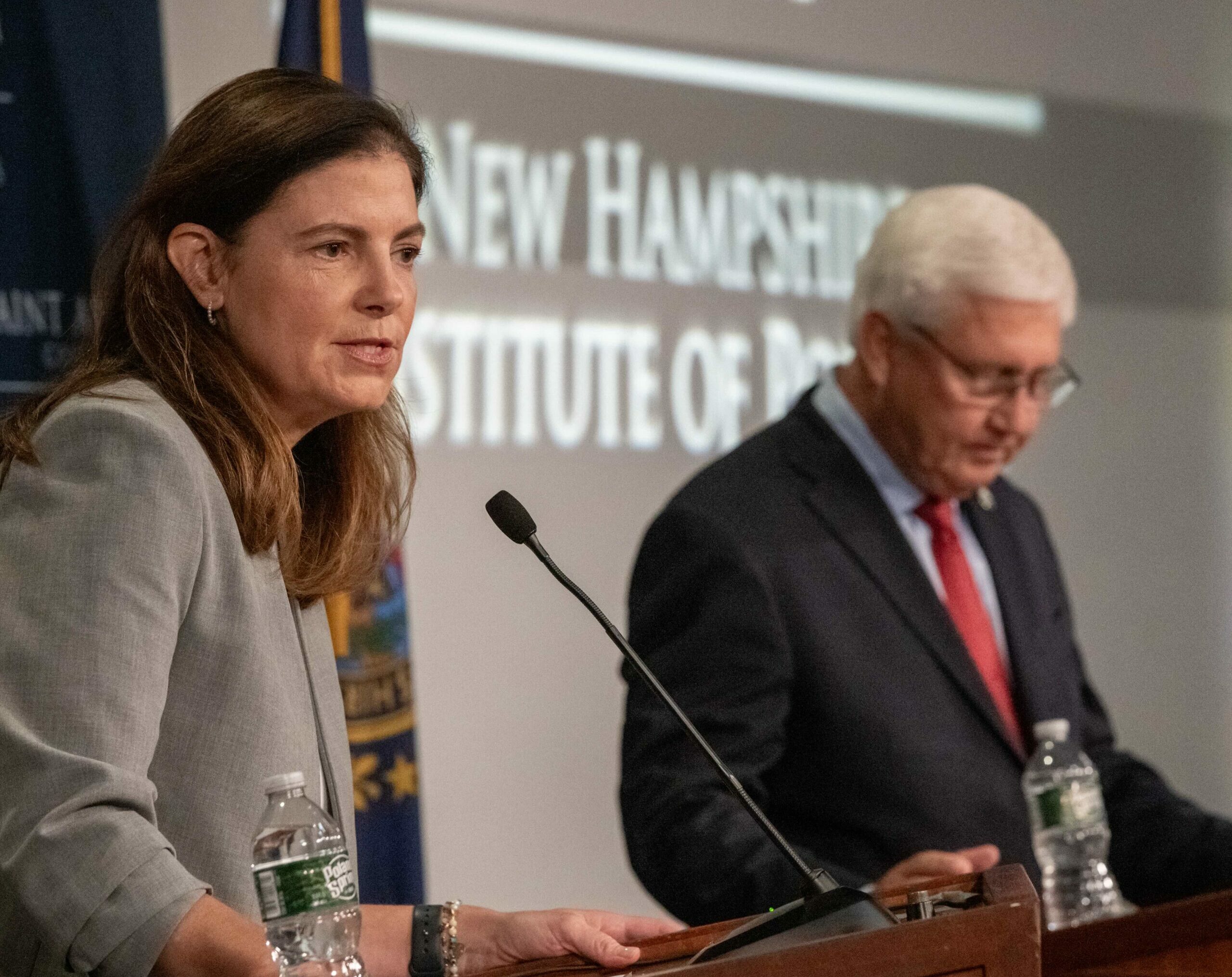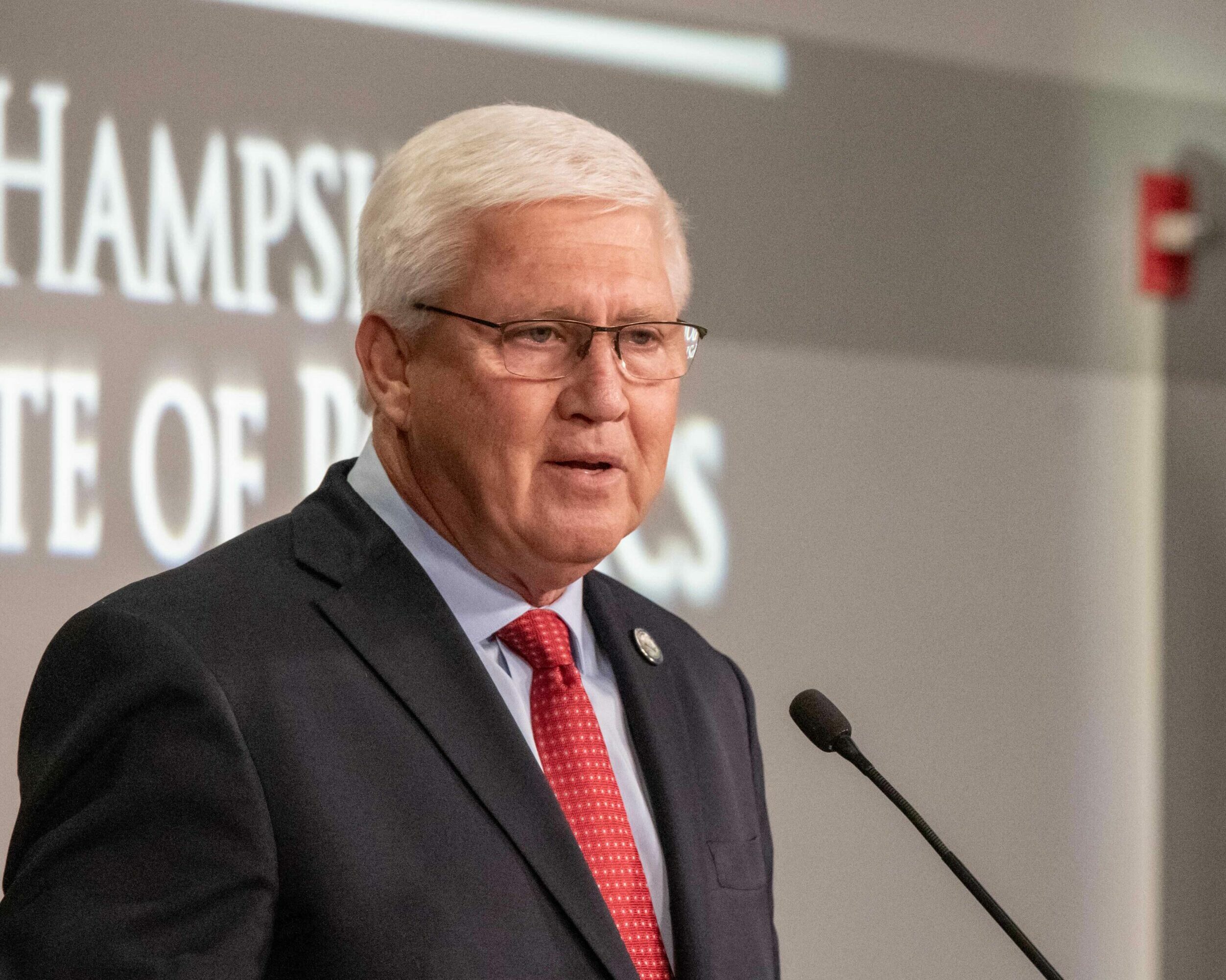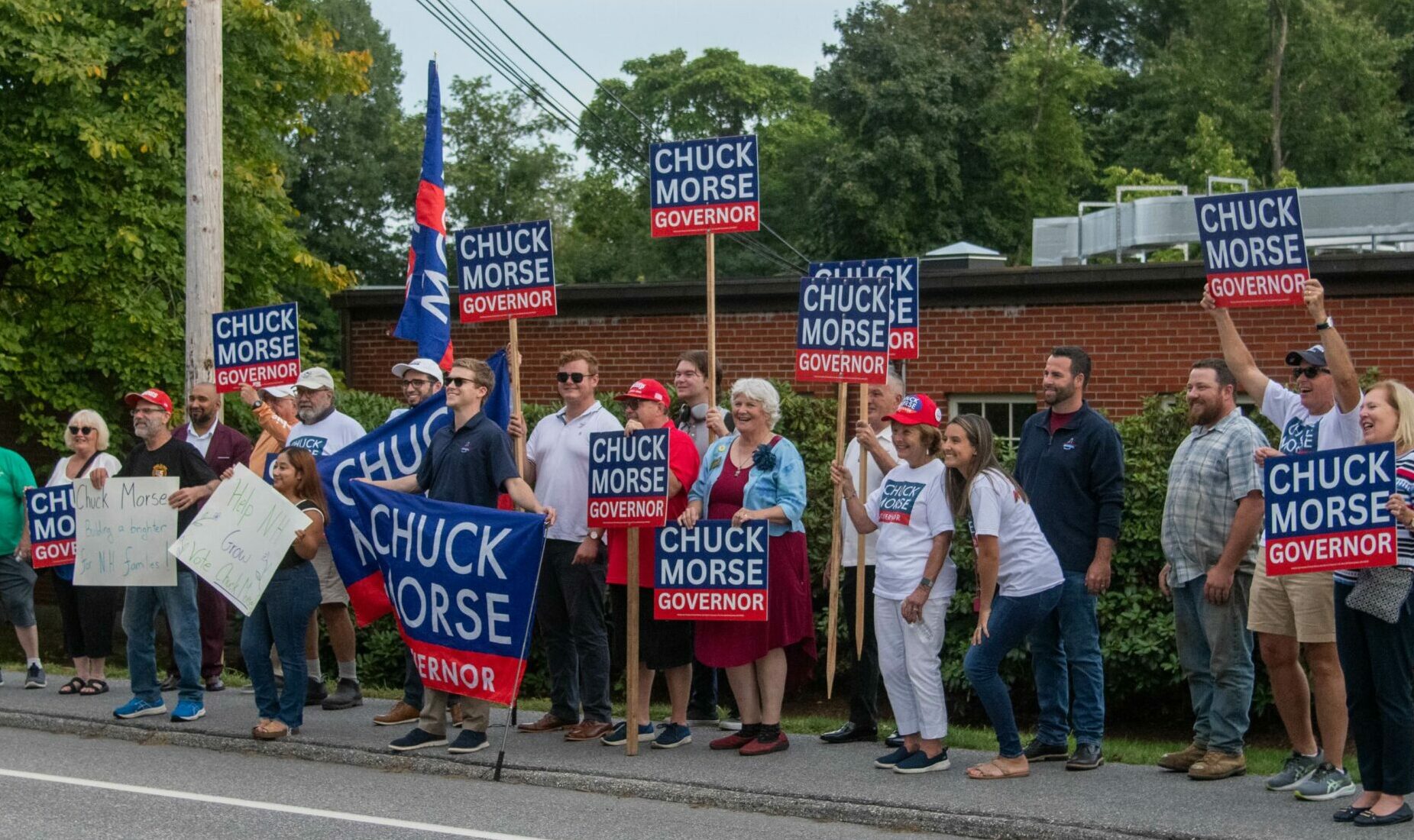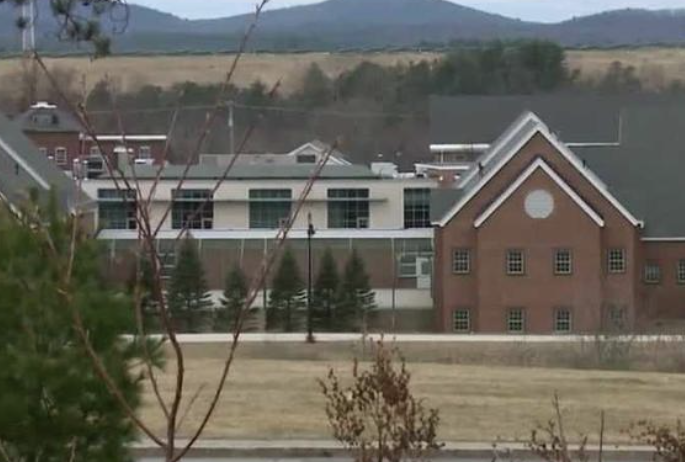Ayotte, Morse Mix It Up in GOP Primary Debate

It didn’t take long for the two Republican candidates for governor to make it clear they came to the first debate of the primary ready to rumble.
Both former U.S. Sen. Kelly Ayotte and former state Senate President Chuck Morse are running ads attacking their opponents, and they brought those attacks on stage for the NHJournal debate at the New Hampshire Institute of Politics.
Morse, who’s trailing badly in public polls, was the first to go on offense, using his opening statement to lay out his attack against Ayotte.

Former state Senate President Chuck Morse answers a question at the NHJournal GOP gubernatorial debate on August 26, 2024.
(CREDIT: Jeffrey Hastings)
“Kelly Ayotte went to Washington and voted with the Democrats over 260 times,” Morse said. “She voted to grant amnesty to 11 million illegal immigrants, and she voted against school choice for low-income families. And in 2016, she couldn’t support our nominee for president, Donald Trump. I’m going to run on my conservative values in my record.”
Ayotte fired back, pointing out her support from across the GOP spectrum and noting, “I’m the only person on this stage who was ever asked to help the Trump administration,” a reference to her work helping sherpa Supreme Court Justice Neil Gorsuch’s nomination through the Senate confirmation process.
Morse attacked her for serving on the board of directors of Blackstone, one of the largest corporate owners of rental property in the U.S., accusing it of “destroying” the housing market.
Ayotte shot back, “You know what, Chuck? It’s pretty ironic, because you sound like a Democrat. It really surprises me to see you denigrating the private sector. That’s what I expect to hear from the left, and that’s not the attitude I’m going to bring to the Corner Office.”
The ugliest attack came, however, when Morse tried to link Ayotte to the sex abuse scandal at the Youth Development Center. Some of the alleged assaults occurred during the years she served as attorney general, though none of the cases were brought forward during that time.
“She was the chief law enforcement person in our state when these kids were being raped and brutalized in the Sununu Center in 2005, 6 and 7. That’s when she was there. So if she wants to talk about failures, about what she hasn’t accomplished, let’s talk about that,” Morse said.
“This is what’s so sad about Chuck Morris in this campaign, that he’ll say or do anything,” Ayotte responded.
She added that her record at the Attorney General’s Office included investigating the Roman Catholic Diocese of Manchester for child abuse.
The debate also included some light moments. Asked what movie or TV show she would recommend for anyone thinking of getting into politics, Ayotte said “Game of Thrones.” Morse’s pick? “Rocky. I’m always backing the underdog.”
Other topics covered during the debate included addressing the state’s housing crisis, defending Education Freedom Accounts, and addressing Democratic attacks on the New Hampshire GOP over the abortion issue.
While the debate was live-streamed at NHJournal and broadcast by Manchester Public Television, there was also an audience of about 50 invited guests of the two candidates on hand at the NHIOP.
Ayotte supporter state Rep. Jennifer Rhodes (R-Winchester) told NHJournal afterward she believes her candidate is ready to bring the Republican Party together for the general election, while Morse’s attacks are helping Democrats.
“She responded when he actually went on the attack,” Rhodes said. “I actually think he’s done the job for the Democrats … it’s actually quite shameful, I think.”

Chuck Morse supporters outside the NHIOP during the NHJournal GOP gubernatorial primary debate.
(CREDIT: Jeffrey Hastings)
Morse supporter Ginny Busby of Atkinson wasn’t thrilled by Morse’s strategy either, because she believes he has the record to run on as an effective public servant.
“I wasn’t pleased [with the attacks] but it’s politics,” Busby said. “He’s better than that, he doesn’t need to do that.”
But former House Speaker and Republican National Committeeman Bill O’Brien said the back and forth is part of the process, and he doesn’t believe it’s going to have an impact on the November election.
“I don’t think that’s going to be terribly important … I’ve seen a lot worse than that, too,” O’Brien said.
“They are competent candidates, both of them, candidates that the party can get behind,” O’Brien said. “They each have their strengths,” O’Brien said.
The net result, GOP insiders told NHJournal, is that Morse needed a major shift in the race. He didn’t get it.
“Ayotte won on points tonight by smartly reminding the GOP she’s fighting against Massachusetts and national Democrats simultaneously,” said one veteran GOP campaign insider. “Morse was solid, but he needed a moment to go viral and break through. It didn’t happen.”
After the debate, both candidates declared victory.
“Granite State voters deserve to know what’s at stake on the ballot this fall, and tonight was just the beginning of making sure the distinction between my record and that of my opponent is crystal clear,” Morse said in a statement touting his “dominating performance.”
“I have always stood by our party and President Donald Trump, and I am committed to uniting Republicans to secure victory this fall.”
Spokesman John Corbett said Ayotte “showed why Granite Staters are rallying around her campaign. Kelly is the conservative leader ready to defeat Joyce Craig and keep our state safe, prosperous, and free.
“These sad, desperate attacks from Phony Chuck Morse won’t change the fact that he is losing bigly, and his negative campaign is being soundly rejected by the few voters across the state who have ever heard of him.”



